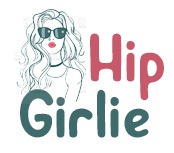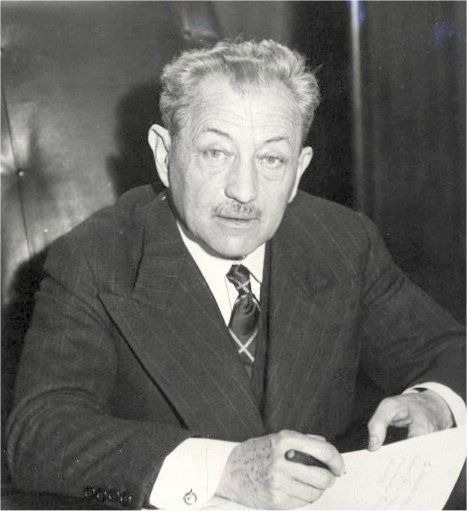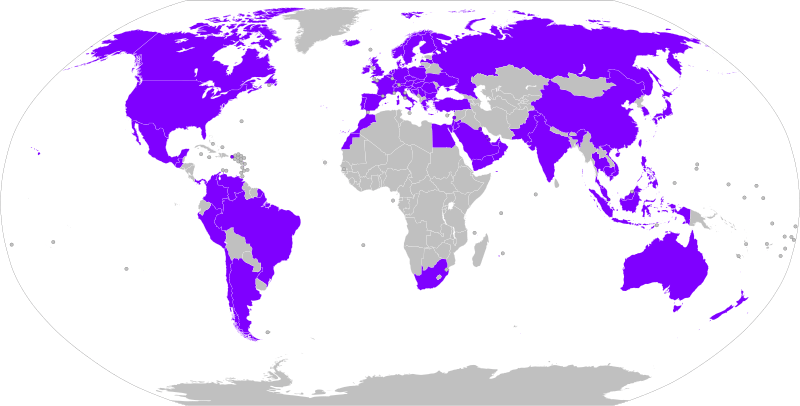L’Oréal is a multinational cosmetics company that has been operating for over a century. The company was established in 1909 by French chemist Eugene Schueller and first concentrated on hair dyes before expanding to encompass various personal care and cosmetic goods. The global cosmetics corporation has 36 brands, employs 88,000 people, and sells in 150 countries. The company’s products are manufactured with quality ingredients and designed with innovative technology, making it a trusted choice for people wishing to enhance their natural beauty. L’Oréal has a professional section that sells goods to salons and spas in addition to its prominent consumer brands.
L’Oréal’s Brand History: From Hair Dyes to Global Beauty Leader
L’Oréal, a renowned name in the beauty industry, had its humble beginnings in 1909 with the research and experimentation of French chemist Eugene Schueller. He created his first hair dye and began distributing it to hairdressers and salons in Paris. In 1919, he established the Société Française de Teintures Inoffensives pour Cheveux, a company based on the principles of creating safe and effective hair dyes through scientific research.
Eugene Schueller’s company quickly expanded, producing and selling soaps, shampoos, and hair treatments. By 1920, the company had hired three chemists, a figure that had risen to 1,000 by 1984 and is now estimated to be over 2,000. L’Oréal purchased the soap manufacturer Monsavon in 1928, signaling the beginning of numerous subsequent acquisitions. By 1953, the business had received permission to sell its products in the United States. From 1909 through 1956, Schueller worked to lay the groundwork for L’Oréal, with a strong emphasis on research and innovation at its core.
L’Oréal’s Continued Global Expansion and Success After the Founder’s Passing
After Eugene Schueller’s passing in 1957, Francois Dalle took over as CEO. During the years from 1957 to 1983, L’Oréal saw significant growth and expansion as an international company. Many new products were introduced, and the company made strategic acquisitions of other brands. In 1957, Chairman Francois Dalle began selling L’Oréal’s hair products to the consumer market, which helped to increase the brand’s recognition and trust among consumers. The company continued to place a strong emphasis on research and innovation, resulting in the development of even more advanced and high-quality products.
L’Oréal’s success and global expansion continued in the 1960s, with the company selling its products in 60 countries by the early part of the decade. In 1964, L’Oréal made two major acquisitions, purchasing the French cosmetics company Lancôme and the hair care company Garnier. In 1973, the company added Synthélabo to its portfolio. Through acquisitions and investments in companies such as Helena Rubinstein and Lanvin, L’Oréal solidified its position as the world’s leading cosmetics company in the 1980s. At this time, the company had also established state-of-the-art laboratories in multiple countries, further demonstrating its commitment to research and innovation.
Under the direction of Charles Zviak from 1984 to 1987, L’Oréal had substantial growth and development as a result of a concentration on research and the successful launch of essential products. With the appointment of Lindsey Owen-Jones in 1988, the emphasis on innovation and expansion was maintained. Under his leadership, the firm acquired other companies and continued dominating the cosmetics sector worldwide.
Celebrating “Beauty For All”: L’Oréal’s Commitment to Diversity and Multiculturalism
L’Oréal is a multinational beauty brand that encourages multiculturalism and diversity in its workforce, products, and marketing. The organization has a long history of promoting diversity and inclusivity and has put in place a number of programs to support these ideals. Since 2006, L’Oréal has been committed to its mission of “Beauty for All,” striving to make high-quality beauty products accessible to people of all ages, genders, and cultures. This focus on inclusivity has helped drive the company’s success, with revenue increasing by half and profits doubling from 2004 to 2013.
L’Oréal’s success in markets across Europe, Asia, Africa, and America can also be attributed to its commitment to multiculturalism. The company has employed professionals from diverse backgrounds in product development, giving it a competitive advantage in new markets. This dedication to diversity has earned L’Oréal a spot on Forbes’ list of Best Employers for Diversity, ranking at number 16.
Another example is the L’Oréal USA For Women in Science program, which aims to assist female scientists’ professional growth and promotion. Women in STEM professions can apply for scholarships, fellowships, and other resources through the initiative.
L’Oréal offers a comprehensive assortment of products for various complexion tones, hair types, and other personal care needs. In addition, the corporation attempts to ensure that its marketing and advertising initiatives are inclusive and representative of its varied client base. L’Oréal has purposefully purchased brands from different cultural backgrounds to fulfill the diverse beauty demands in the global cosmetics business. It continues to introduce new products every year to meet customer wants worldwide.
View this post on Instagram
Uncovering the Latest Beauty Innovations: L’Oréal’s Dedication to Research and Development
L’Oréal was established in 1909 with a concentration on research and science. This strategy is still a critical component of the company’s operations today. The corporation has 21 research centers and 4000 researchers working to develop novel products based on thorough analysis and testing. L’Oréal’s products are only developed after extensive research with big data samples, and they are tested on Episkin.
Episkin is developed by cultivating human skin cells in a laboratory setting. The cells are grown on a protein and nutrition matrix. They are constantly monitored to ensure that they remain healthy and viable. Once the cells have grown large enough, they are extracted and used to make Episkin. One advantage of employing Episkin for product testing is that it allows researchers to evaluate the impact of various compounds on human skin without using animals. It is also a more realistic representation of human skin than animal skin, which can vary substantially in structure and function.
View this post on Instagram
A Wide Range of Beauty Products for Every Need: L’Oréal’s Diverse Product Lineup
L’Oréal is a global beauty company that sells a variety of personal care products, including:
- Skincare: L’Oréal provides a wide range of skincare products, including cleansers, toners, moisturizers, serums, and facial masks. The brand offers products for various skin types, issues, and ages, including acne-prone, dry, sensitive, and mature skin.
- Hair care: L’Oréal offers a variety of hair care products, such as shampoos, conditioners, styling products, and hair treatments. The brand provides products for various hair types, such as curly, straight, and color-treated hair, as well as solutions for hair issues, such as dryness, damage, and frizz.
- Makeup: Foundations, concealers, powders, blushes, eyeshadows, mascaras, lipsticks, and other cosmetics are available from L’Oréal. The brand offers makeup for various skin tones, situations, and makeup looks, as well as makeup for various skin disorders like acne, redness, and uneven skin tone.
- Hair color: L’Oréal is a significant manufacturer of hair color products, including permanent, semi-permanent, and temporary hair dyes. The company offers a variety of colors and tones, as well as hair color products for various hair kinds and issues.
- Men’s grooming: L’Oréal also provides a line of men’s grooming products, such as shampoos, conditioners, beard oils, facial treatments, and more.
- Fragrance: L’Oréal offers scents for both men and women, including perfumes, colognes, and body sprays.
- Professional items: L’Oréal also offers a variety of professional-grade products for use in salons and spas, such as hair care, skincare, and makeup.
View this post on Instagram
Overall, L’Oréal is dedicated to helping people feel confident and good about themselves through its commitment to beauty, as reflected in its slogan, “Because you’re worth it.” The company is focused on providing high-quality, safe, and effective products to its customers. It is also committed to sustainability and responsibility in its business practices. L’Oréal is motivated by the desire to positively impact people’s lives through its products and initiatives. All of these factors contribute to L’Oréal’s success as a leading beauty brand.



